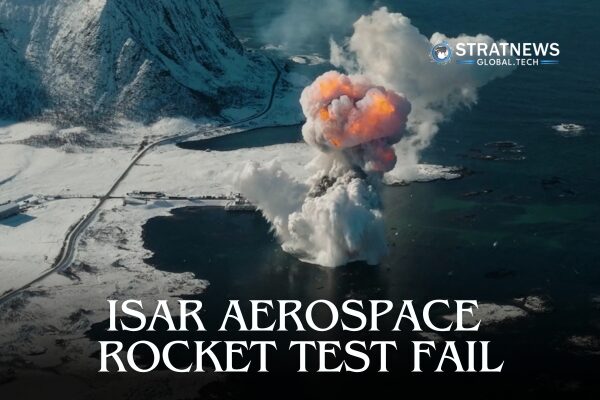European Test Rocket Explodes Shortly After Takeoff in Norway
A test rocket launched by German startup Isar Aerospace exploded just seconds after lifting off from a spaceport in northern Norway. The uncrewed rocket, named Spectrum, crashed back to Earth and exploded less than a minute after takeoff during what was described as its first major test.
Isar Aerospace Rocket Suffers Failure Shortly After Liftoff
The Spectrum rocket took off at 12:30pm local time (11:30am BST) on Sunday from the Andøya spaceport, located in the Arctic Circle. Within 30 seconds, it began smoking from the sides and was forced to terminate its flight. The launch vehicle then fell into the sea and exploded in a controlled manner. The dramatic event was broadcast live on YouTube.
Despite the failure, Isar Aerospace had previously stated that even a short flight would be considered a success. The company said it collected valuable data during the flight, which will be used to improve future missions.
Marking a New Chapter in Europe’s Space Ambitions
This mission marked the first commercial attempt to launch an orbital rocket from European soil, excluding Russia. Although Spectrum did not carry any satellite payload, it was intended as a complete systems test for future launches. Isar Aerospace’s vehicle is designed to place satellites weighing up to 1,000kg into low-Earth orbit.
Founded in 2018 and based in Munich, Isar Aerospace built most of the rocket in-house. The company has also signed a deal with Norway’s space agency to launch two maritime surveillance satellites by 2028.
European countries, including Sweden and Britain, are seeking to enter the growing market for satellite launches. Traditionally, European satellites have been launched from Russian platforms, but political tensions have halted that cooperation.
Europe’s Growing Space Sector Faces Setbacks and Competition
Europe’s space industry has seen delays with its main Ariane 6 rocket and issues with the Vega-C satellite launcher. However, several new spaceport sites are under development, including in Sweden, the Shetland Islands, and the Portuguese Azores.
Private European firms such as HyImpulse, Rocket Factory Augsburg, Latitude, MaiaSpace, and PLD Space are also racing to develop their own launch capabilities. Coastal launch sites are preferred due to safety, as rockets can fly over open sea rather than populated land.
While the Spectrum’s test ended in failure, European Space Agency director Josef Aschbacher praised the effort, saying, “Rocket launch is hard. Never give up, move forward with even more energy!”
Isar Aerospace remains committed to its goal of providing independent access to space from Europe and sees this test as a critical step forward.
with inputs from Reuters


